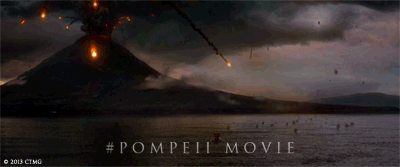Sunday, January 19, 2014
Blavatsky and Pompeii
One of the crazier things written about H.P. Blavatsky was that her first book, Isis Unveiled, was derived from Bulwer-Lytton’s 1834 novel The Last Days of Pompeii. A very learned and reasoned study by S.B. Liljegren, Bulwer-Lytton’s Novels and Isis Unveiled, was published in Upsala, Sweden, in 1957; in it he argues that since part of Bulwer-Lytton’s novel describes the cult of Isis, and since Blavatsky’s book was titled Isis Unveiled, there is an obvious influence. No matter that the book’s title was chosen by the publisher, or that it’s editor could note that this choice was singularly unfortunate (“This work of Madam Blavatsky is largely based upon the hypothesis of a prehistoric period of the Aryan people in India, and in such a period the veil or the unveiling of Isis can hardly be said to constitute any part”), for Liljegren Bulwer-Lytton was her inspiration. Unfortunately in emphasizing this idea he diminishes or simply ignores the possibility of other possible influences.
The story of Pompeii, the Roman city near modern Naples, destroyed and preserved in volcanic ash from the eruption of Mount Vesuvius in 79 AD, has been a familiar motif in European literature and the arts since its rediscovery and subsequent excavation at the end of the eighteenth century. Bulwer-Lytton’s contribution, The Last Days of Pompeii, with its recreation of the life of an ancient Roman city broadened its popularity. Film has been especially kind to it with almost a dozen adaptations of the story of the doomed city and love amid the ruins. The news of still another recreation, Pompeii, to be released at the end of February 2014, shows that its charm has not lessened.
Subscribe to:
Post Comments (Atom)

No comments:
Post a Comment
All comments to this blog are subject to moderation, and may appear at our sole discretion, if found to add relevance to the site's topics.